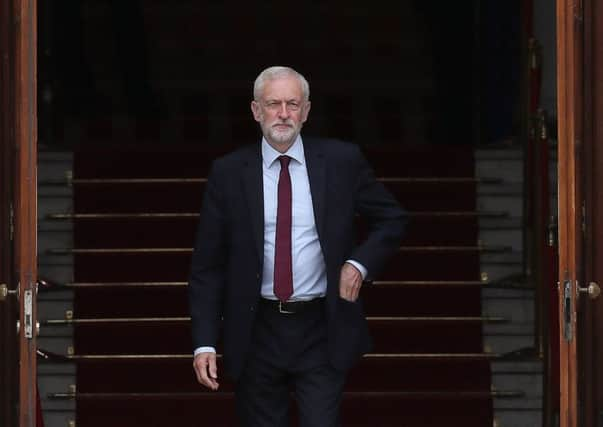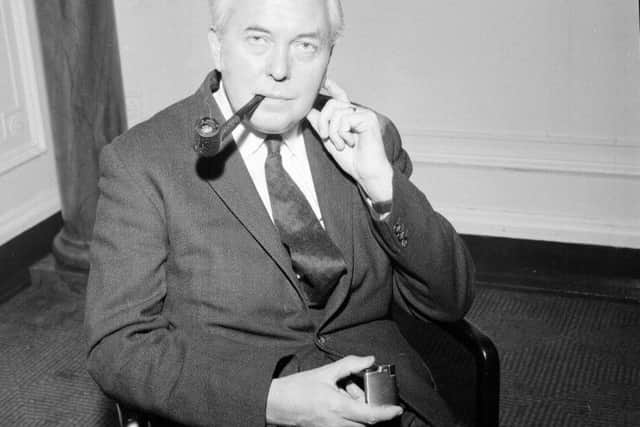Brian Wilson: What does it take for Jeremy Corbyn to quit as Labour leader?


Just when you might have thought things could not get much worse for Labour, along comes Pete Willsman with his poisonous rant. Well, no surprises there.
Most readers will be fortunate enough never to have heard of Willsman and even luckier never to have listened to him. He is a fossil of the 1980s mad-dog days, brought back to significance by the Corbyn revolution.


Advertisement
Hide AdAdvertisement
Hide AdWillsman’s ten minutes of infamy serve as a useful guide to the problems Labour faces and indeed the threat to its very existence as a potential party of government.
Apart from his anti-semitism outbursts, Willsman has been an organisational figure with little policy interest. Going right back to the Bennite hey-day, he was the fixer who could do the numbers, pack the meetings, organise the de-selections.
He epitomises the ultra-left article of faith – that the big job is to take over the machinery of the party. Then the electorate, scales lifted from their eyes, will follow at some indefinite future point.
There is nowhere in the world which validates this gibberish but that is a problem for another day – an encounter with reality now approaching more rapidly thanks to Labour’s handling of Brexit and resultant humiliation in the European elections.
The joyous cries of “hey Jeremy Corbyn” are unlikely to ring out any time soon. What the electorate increasingly sees is someone who really shouldn’t be there, hamstrung by past associations and surrounded by an unattractive clique of ideologues and incompetents.
If Corbyn could have cut it as leader and slaughtered the dragons around him, I would have wished him well.
He won the contest fair and square. He deserved a chance even if there was a grim predictability about the outcome.
In fairness, too, he never for one moment expected to be Labour leader and his emergence was an inadvertent extension of the same feud that has been going on for a decade – the first stage of which was to elevate the unelectable Ed Miliband for the single purpose of stopping his brother.
Advertisement
Hide AdAdvertisement
Hide AdThe most important dividing line within Labour is always between those who see its purpose as winning elections in order to govern in the interests of those who need Labour governments, and the fringes for whom power is an optional extra, a poor second to their own version of purity.
There has never been a shred of evidence that Labour can win a General Election without a leader who appeals across the social divides, who appears as a conciliator rather than an ideologue and has the personality to be credible as a national leader as well as a party factionalist.
The three post-war Labour Prime Ministers to win elections – Attlee, Wilson and Blair – confirm that point. There has never has been any indication that mainstream Britain – or indeed Scotland – has cried out for the politics of Corbyn or Willsman.
There is plenty room for radicalism within the formula which allows Labour to win elections – as demonstrated by the delivery record of every Labour government. Competence, radicalism and credibility can win elections. At present, we have incompetence, incoherence and 14 per cent of the vote.
Buoyed by the fact the Tories did even worse, Corbyn is back to calling for a General Election. He should be careful in case he gets one, presumably in the hope that some freakish splitting of the vote would give him a sniff of power. It wouldn’t.
The difficulties in Scotland are compounded by the fact there is another leader, elected on the credential of being the anointed Corbynite, who has failed to make any impression with the electorate. Labour is down to nine per cent. How long can this handiwork continue?
What can be salvaged from this humiliating mess? Normally, leaders who achieved such historically awful results would pack their trunks and say goodbye to the circus. That has not happened.
It looks like the master strategy is to await the apocalypse while hoping something turns up.
Do those of us who still vote Labour because we vote Labour just have to cringe and bear it?
Brian Wilson was a Labour Party MP from 1987-2005